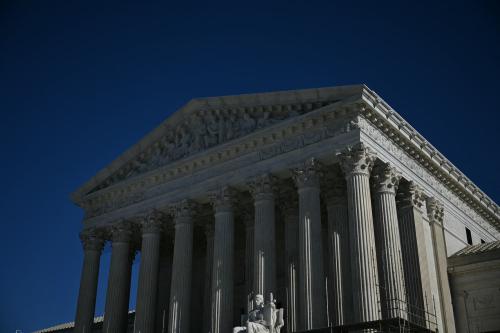(CNN)—The negative campaigning and fiery rhetoric in the
presidential campaign have cooled in recent weeks, a civility
Stephen Hess says everyone with a stake in politics and
journalism should adhere to. His book “The Little Book of
Campaign Etiquette: For Everyone with a Stake in Politicians
and Journalists” (Brookings Institution) takes a look at
political campaigning and political and journalistic etiquette.
Hess recently talked to CNN’s Kyra Phillips from Washington on “CNN Sunday
Morning.”
CNN: I tell you, I love this book because it
put me to the test as I was reading it last
night. Now, you’ll notice in the intro I left that
word “rhetoric” in there on purpose and it’s
because I’m referring to your chapter on
vocabulary and you mention the impact of
just one word, whether it’s a politician or a
journalist, and why use “rhetoric”? Why not
use “dialogue”?
HESS: Well, I think, by the way, dialogue is
what we’re after. We expect a candidate to
deconstruct the position papers or the
policies of his opponent. Everything shouldn’t
be about how wonderful they are. We want
to know what they think about how awful the
other side is. When you step over the line
you’ve got to be awful careful. For example, I’m a little worried in the last week
about Vice President Gore. I think he’s absolutely on target to attack George
W. Bush’s position, but then you listen to the words and he’s saying they’re
reckless, irresponsible, smug.
Now, are these really words that we associate with policy or are they words
that we associate with character? Isn’t there a subliminal message that he’s
saying well, it’s really George Bush that’s smug, not his policies?
So I think that’s the sort of thing we need to examine as we get more and more
into this campaign year.
CNN: So what’s your rule of etiquette for politicians?
HESS: Well, words have consequences, no question about that, and they must
consider that.
CNN: Another great chapter, “Bias.” Do you think a majority of Americans think
the press is of liberal bias and what’s your rule of etiquette?
HESS: Well, I’d have to look up my rule but the…
CNN: I’ll do that for you. Go ahead.
HESS: I should say—OK. What the book is, for those that haven’t read it, is 41
little essays. I hope they’re sort of entertaining. And they’re alphabetical from “A
is for advertising” to “B is for bias” to “C is for conflict of interest” to “D is
debate” and so forth.
I think on the question of bias, people think that things that don’t agree with
their stated position are therefore biased. So let’s say they pick up a paper and
they’re reading a story about the IRA or they’re reading a story about abortion or
they’re reading a story about Palestinians, something that they feel strongly
about, and if the story doesn’t conform to their views, then therefore it’s biased.
So I think sometimes the press gets a bad rap on that.
CNN: And your rule of etiquette, “Reporters should practice leaning,” meaning
when covering a campaign they deliberately lean a little against the candidate
they might be inclined to favor?
HESS: Yeah, that’s something I borrowed from some great political reporters of
the past, Alan Otten of the Wall Street Journal and then David Broder of the
Washington Post. It’s the way they do it. Everybody has feelings. No two
candidates do they view exactly the same, and when they see that one is more
in line with their thinking, lean a little against that one and you’ll come out about
right.
CNN: OK, we’ve got to hit on this one, Stephen, before we rap up, “Lying.” You
address lying for journalists and politicians. Please give us the rule of etiquette
here. Is lying that bad?
HESS: Well, you know about a hyperbole. We expect them maybe to go a little
gloriously in their rhetoric. If it’s a misstatement that shouldn’t be on the front
page of their local newspaper, they’ve probably gone too far. But I divide lying
into honest lying—inadvertent lying, that sort of thing—and then, of course,
damn lies. It’s the damn lies we’d better worry about.
CNN: What about journalists who may sort of, you know, the lie may be
important for a bigger social cause? Investigative reporting, prime example.
HESS: Well, I get a little worried about that. For instance, I happen to be very
much against hidden cameras. I think journalists should be able to get what
they need without doing things that break the law. And that’s the law as applied
to them. The First Amendment does not protect reporters breaking the law and
that seems to be a quite clear constitutional principle.
The Brookings Institution is committed to quality, independence, and impact.
We are supported by a diverse array of funders. In line with our values and policies, each Brookings publication represents the sole views of its author(s).



Commentary
Stephen Hess: Even Campaigners Should Follow Etiquette
May 8, 2000